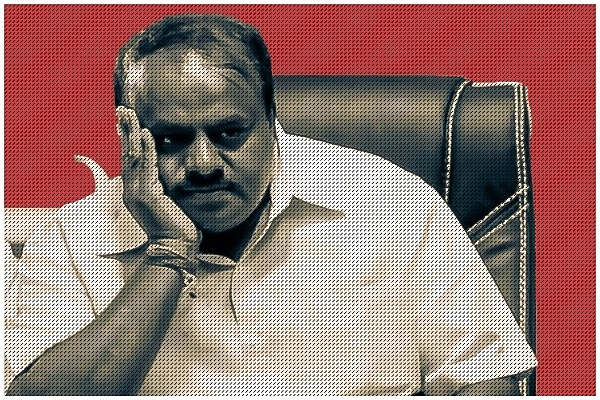
Karnataka Deserves Better: Why BJP Must Call Quick Polls
Karnataka, one of the key states in terms of its size and status in the Indian economy, deserves better.
Elections are what the state and the BJP need if the Congress and JD(S) government collapses.
For more than a year now, ever since Karnataka delivered a hung verdict in the state assembly elections last May, the state has seen little governance. The Congress and the Janata Dal (Secular) or JD(S), which banded together to deny the near-winner, the Bharatiya Janata Party (BJP), a shot at power, has been doing little beyond trying to stay in power, with Chief Minister H D Kumaraswamy frequently making a spectacle of himself with bouts of tears over his helplessness.
So, even if it is fair to assume that the BJP is behind the precipitation of the latest crisis, where several MLAs from both ruling parties have resigned, the reality is that something had to give. And it has. There is little chance of the coalition-of-convenience lasting its term, and even less of it performing coherently on the basis of trying to keep it flock together by promises of loaves of office. Its death warrant is written in bold lettering.
The drama being enacted daily — with more MLAs deserting the ship, with Congress party strongman D K Shivakumar flying to Mumbai to entice some of them back, and being physically thwarted from engineering a reverse coup, and the state assembly Speaker’s decision to reject some of the resignation letters of MLAs on grounds that they were not in order — is unedifying. In future, even plain-and-simple letters of resignation will be decided by the courts, it seems.
Karnataka, India’s third most important state in terms of its size and status in the Indian economy after Maharashtra and Tamil Nadu, deserves better. And better does not mean another rag-tag coalition, this time led by the BJP and its ageing leader B S Yeddyurappa, backed by rebels without a pause. Yeddyurappa’s first stint as chief minister, formed with the support of rebel MLAs when the party fell short of a majority, remained unstable, and was not marked by strong governance. Even without a corruption scandal ousting Yeddyurappa before his term, the state ended up becoming a byword for instability and weak governance.
So, even assuming the BJP comes back to power following the collapse of the Congress-JD(S) combine, the party should actually call for early elections in order to get a mandate. The Congress and JD(S) MLAs who resigned to make this dubious transfer of power possible will not be opposed to seeking another election, but the BJP’s own MLAs may be weary of the idea of fighting another election. They need to be convinced that this is the best way to end instability in the state.
The BJP faces three dilemmas in Karnataka.
First, it is Yeddyurappa himself. As the party’s Lingayat mascot, and as the man who almost single-handedly made the BJP a power to reckon with in a southern state, it cannot lightly dismiss his claims to the top job which he desperately wants. But Yeddyurappa is too old to rejuvenate the party, and left to themselves, both Amit Shah and Narendra Modi may prefer someone younger who can steer the party for the next decade or more.
Second, the state has been badly misgoverned for more than a year now, and it needs to be administered by a politician who can promote urbanisation and understands the tech moorings of Karnataka’s future economic trajectory. The state is not going to progress by being overly focused on farmers and freebies. Karnataka is India’s entry in the global tech sweepstakes, and is never going to be India’s food bowl. Again, the BJP needs a leader with fresh ideas, and not someone stuck to a farming identity like Yeddyurappa.
Third, the BJP needs to draw up a proper balance between the Lingayats and Vokkaligas in terms of future power-sharing. It thus needs to also develop a strong line of Vokkaliga leaders, who can then alternate in power with the Lingayats. A power pact between these two communities may be crucial to the party’s future growth, which will then also have to grow leaders among the Dalits and other castes. Even though caste is not a strong theme in the BJP of Narendra Modi and Amit Shah, at the state level these things do matter.
One way to resolve these dilemmas may be to give Yeddyurappa a short stint as chief minister, with the specific understanding that he will hand over power to a younger and more dynamic leader who is acceptable to him by early next year while he remains a party elder and power player.
In fact, this is another reason why an election is needed. If it throws up a clear BJP majority — which seems likely after the collapse of governance under H D Kumaraswamy — the party will actually expand its leadership options beyond Yeddyurappa right away.
Either way, elections are what the state and the BJP need.